A block of mass M slides on a frictionless surface with an initial speed of v0 On top of block is a small box of mass m. the coefficients of friction between box and block are μ6andμk. The sliding block encounters and ideal spring with force constant K. Answer following questions. What is maximum value of k for which it remains true that box does not slide?
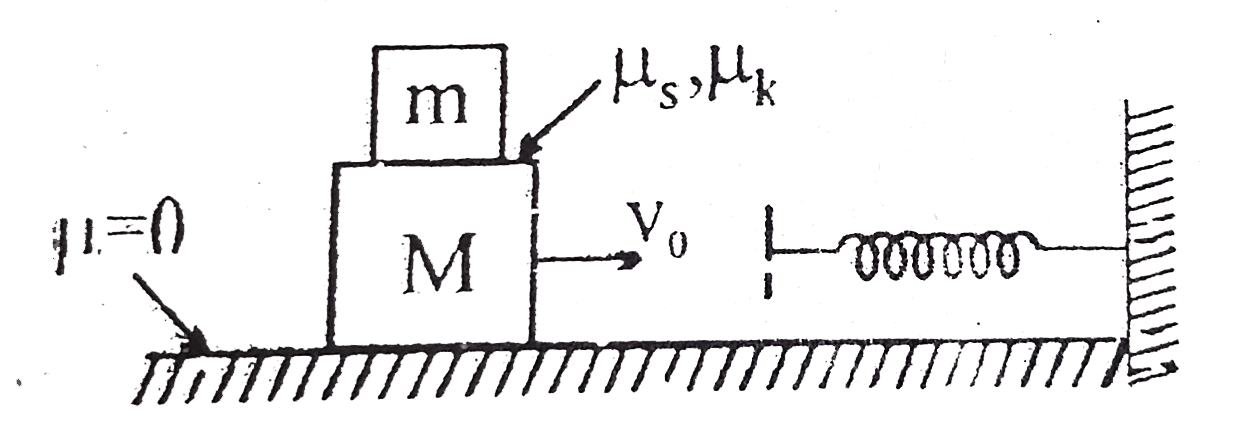
(μsgv0)2M(M+m)
(μsgv0)2(M+m)
(μsg2v0)2(M+m)2M
None of these
The correct Answer is:B
12(M+m)v20=12kx2m
kxm=μs(M+m)g
xm=μs(M+m)gk
12(M+m)v20=12k((M+m)μsgk)2
k=(μsgv0)2(M+m)
Topper's Solved these Questions
Similar Questions
A block of mass m rests on a bracket of mass M. The coefficients of friction between block and bracket are μs and μk . The bracket rests on a frictionless surface. What is the maximum force F that can be applied if the block is not to slide on the bracket?
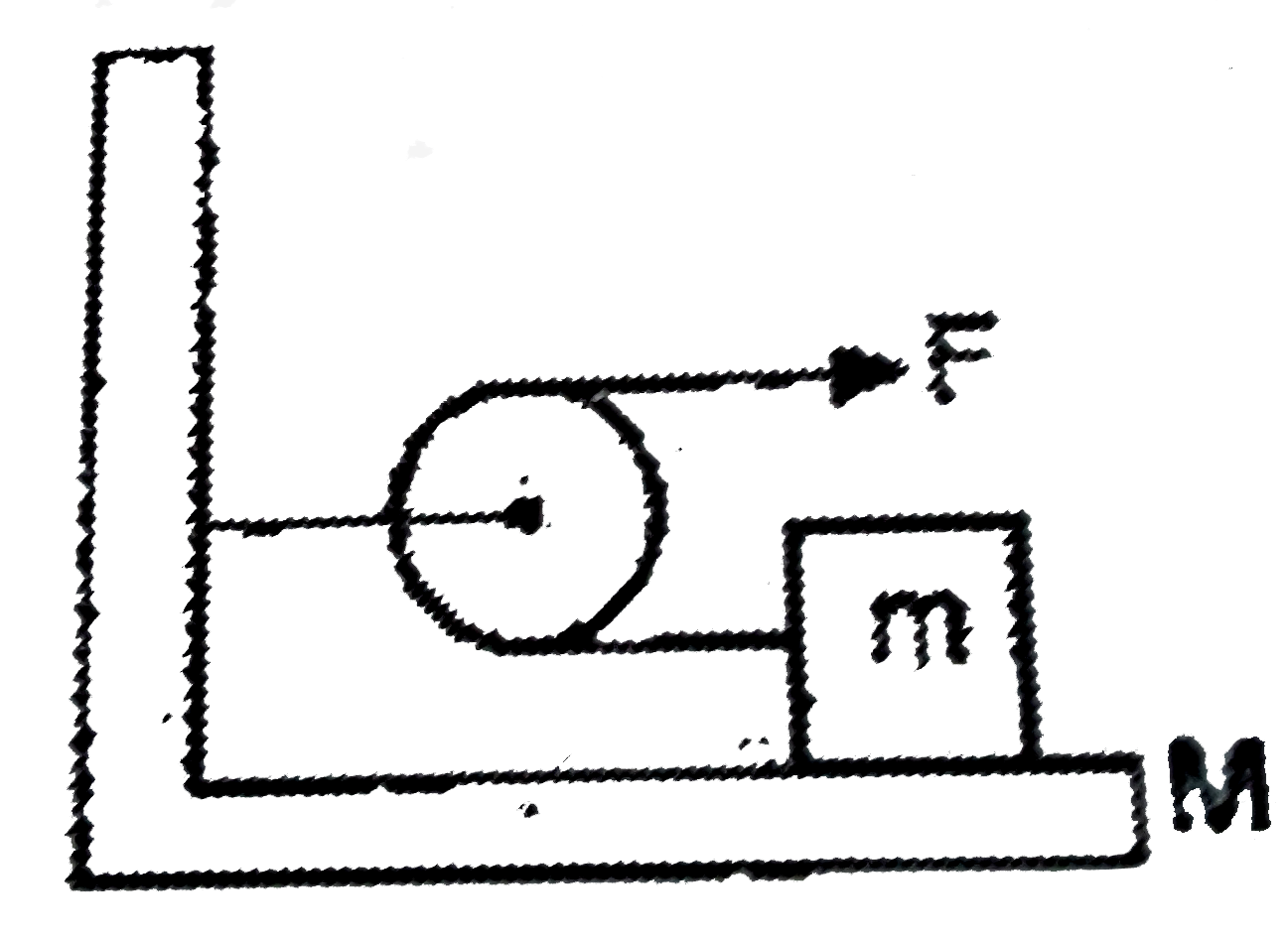 View Solution
View SolutionA block of mass M slides on a frictionless surface with an initial speed of v0 On top of block is a small box of mass m. the coefficients of friction between box and block are μ6andμk. The sliding block encounters and ideal spring with force constant K. Answer following questions. What is maximum value of k for which it remains true that box does not slide?
 View Solution
View Solution
Knowledge Check
- Question 1 - Select One
A block of mass M slides on a frictionless surface with an initial speed of v0 . On top of block is small box of mass m . The coefficient of friction between box and block are μs and μk . The sliding block encounters an ideal spring with force constant k . Answer the following questions :

What is maximum value of k for which it remains true that box does not slide ?A(μsgv0)2M(M+m)B(μsgv0)2(M+m)C(μsg2v0)2(M+m)2MDnone of these - Question 2 - Select One
A block of mass M slides on a frictionless surface with an initial speed of v0 On top of block is a small box of mass m. the coefficients of friction between box and block are μ6andμk. The sliding block encounters and ideal spring with force constant K. Answer following questions. Suppose the value of k is just slightly greater then the value found in previous question, so that the box begins to slide just as the spring reaches maximum compression. The acceleration of box and block are repectively.
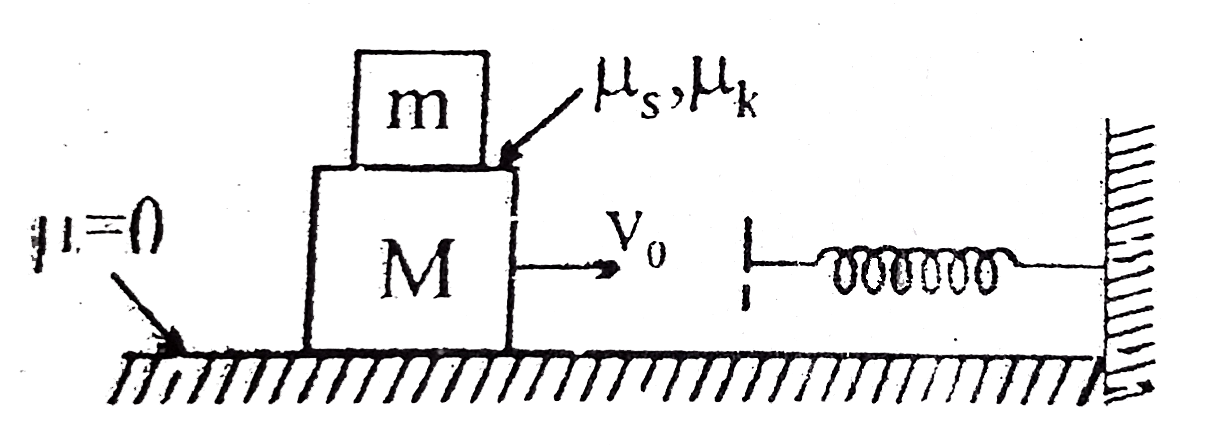 AaBox=μkg,aBlock=m(μs−μk)+μsMMgBaBox=(μs−μk)g,aBlock=(μs−μk)mgMCaBox=μkg,aBlock=(μs−μk)mgMDNone of these
AaBox=μkg,aBlock=m(μs−μk)+μsMMgBaBox=(μs−μk)g,aBlock=(μs−μk)mgMCaBox=μkg,aBlock=(μs−μk)mgMDNone of these - Question 3 - Select One
A block of mass M slides on a frictionless surface with an initial speed of v0 On top of block is a small box of mass m. the coefficients of friction between box and block are μ6andμk. The sliding block encounters and ideal spring with force constant K. Answer following questions.
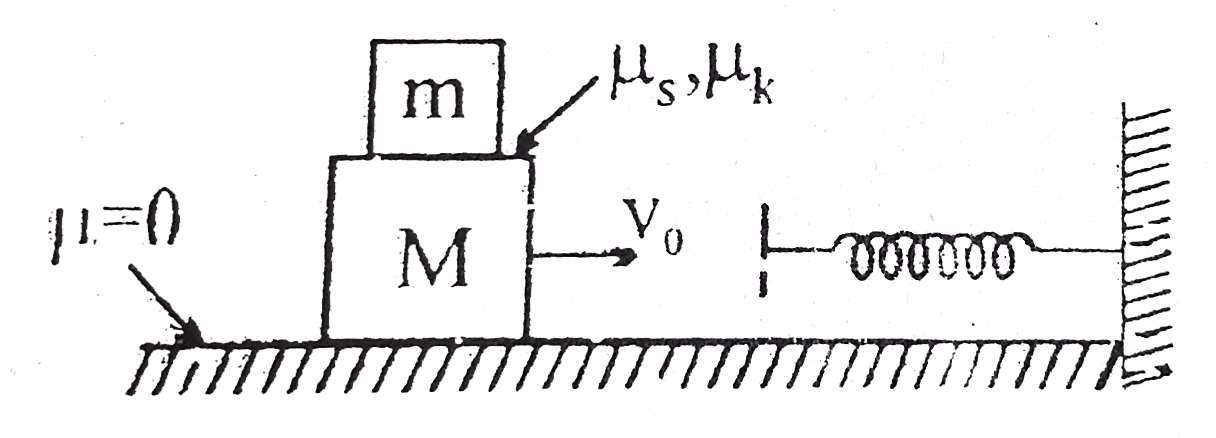
Assuming no relative motion between box and block what is the maximum possible acceleration of block and box at the instant of maximum compression?AμsgBμsMgmCμs(M+m)gmDμsmgM
A block of mass M slides on a frictionless surface with an initial speed of v0 . On top of block is small box of mass m . The coefficient of friction between box and block are μs and μk . The sliding block encounters an ideal spring with force constant k . Answer the following questions :

Suppose the value of k is just slightly greater than the value found in Q.2 , so that the box begins to slide just as the spring reaches maximum compression . The accelerations of box and block are respectively :View SolutionA block of mass M slides on a frictionless surface with an initial speed of v0 . On top of block is small box of mass m . The coefficient of friction between box and block are μs and μk . The sliding block encounters an ideal spring with force constant k . Answer the following questions :

Assuming no relative motion between box and block what is the maximum possible acceleration of block and box at the instant of maximum compression ?View SolutionA block of mass M slides on a frictionless surface with an initial speed of v0 On top of block is a small box of mass m. the coefficients of friction between box and block are μ6andμk. The sliding block encounters and ideal spring with force constant K. Answer following questions. Suppose the value of k is just slightly greater then the value found in previous question, so that the box begins to slide just as the spring reaches maximum compression. The acceleration of box and block are repectively.
 View Solution
View SolutionA long plank of mass M is initially at rest on a frictionless surface. A small block with mass m and initial speed u0 slides on top of the larger plank. The coefficient of friction between the block and plank is μ
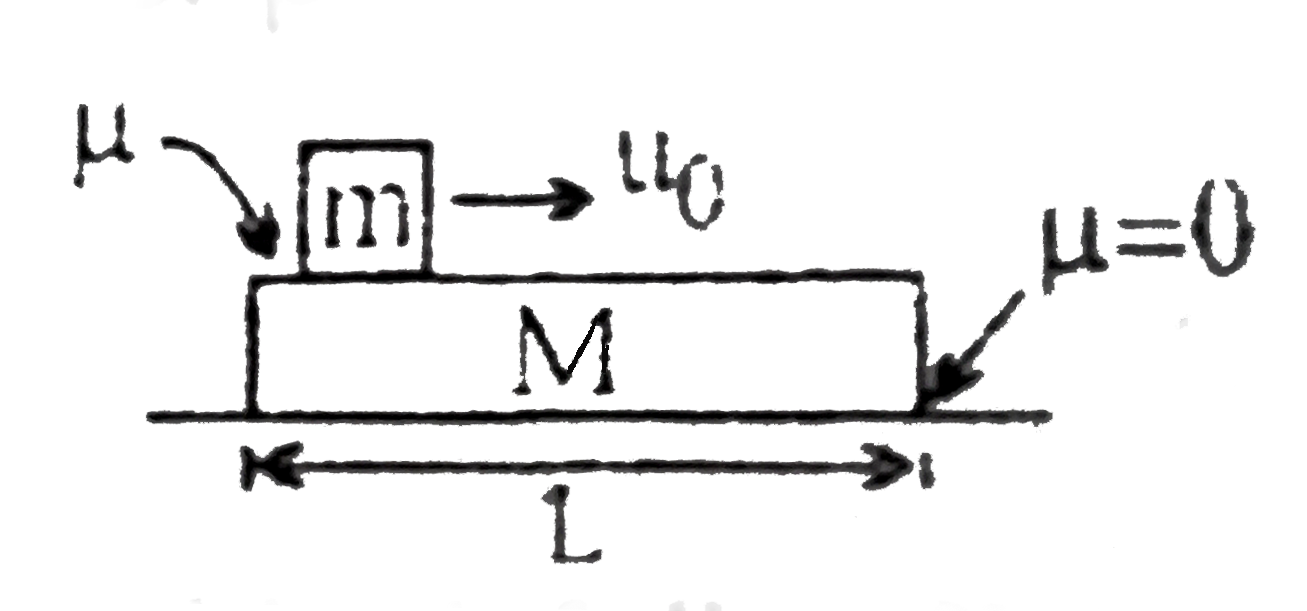
Net work done by friction if the top block falls off the plank after sliding over its length L isView SolutionA block of mass m slides down an inclined plane which makes an angle θ with the horizontal. The coefficient of friction between the block and the plane is μ. The force exerted by the block on the plane is
View Solution

